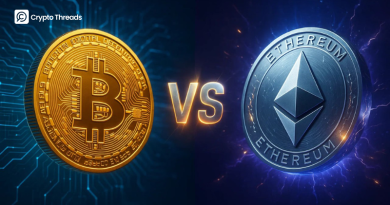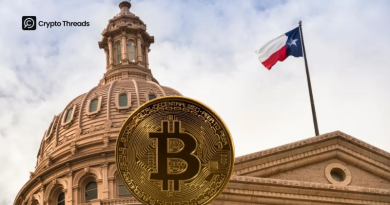Vitalik Buterin Warns: Sam Altman’s Digital ID Project Threatens Online Anonymity
Ethereum Co-Founder Expresses Concerns About World Project
Ethereum co-founder Vitalik Buterin has expressed serious concerns about digital identity projects like World, particularly the risk of eliminating the anonymity that many internet users cherish.
In a detailed analysis of the risks and benefits of digital ID projects using zero-knowledge proofs, Buterin emphasized that “one identity per person” solutions could create unintended consequences.
Risk of Losing Online Anonymity
“With one-person ID, even when ZK-wrapped, we risk moving closer to a world where all of your activity has to effectively be under one public identity,” Buterin warned.
He argued that in an increasingly risky context, removing the ability to protect oneself through anonymity would have significant drawbacks. This is particularly important in the cryptocurrency space, where anonymity is considered a core value.
World Project: Opportunities and Challenges
World, developed by Tools for Humanity co-founded by Sam Altman, has now registered over 13 million “unique humans.” The project requires users to scan their irises using Orb devices to prove they are human, then receive World ID and WLD token rewards.
The biometric data collected is protected in part by zero-knowledge proofs, allowing users to prove their humanity without revealing their actual identity.
Benefits of Digital ID Systems
Buterin acknowledges the potential benefits of these systems:
- Fighting AI and bots: Helps distinguish real users from AI-powered agents
- Platform protection: Prevents manipulation on social media and internet services
- Enhanced experience: Creates a safer and more trustworthy internet environment
“On the surface, widespread adoption of ZK-wrapped digital IDs seems like a big win… protecting our social media, voting rights, and all kinds of internet services from manipulation by hackers and bots, without compromising privacy,” he wrote.
Risks of the “One ID Per Person” Model
However, Buterin warns about serious risks when implemented rigidly:
Loss of Ability to Maintain Multiple Identities
To leverage anonymity, users need the ability to own and manage multiple email accounts and social media profiles. With a one-ID-per-person system, this would no longer be feasible.
“In this world, social media applications would only use one application-specific ID per user, and since the ID system is one per person, each user would only be able to have one account,” Buterin explained.
Comparison with Current Systems
This is completely contrary to “weak IDs” like current Google accounts, where on average a person can have about 5 different accounts, allowing them to maintain different levels of privacy for different activities.
Alternative Solution: Pluralistic Model
Instead of adopting a ZK-wrapped “one ID per person” solution, Buterin proposes using a pluralistic model. In this model:
- No individual, organization, or platform has exclusive responsibility for issuing digital identities
- Power is distributed rather than centralized
- Users have more choices in identity management
Global Trends and Future
Buterin notes that digital identity initiatives using zero-knowledge proofs are becoming popular not only in blockchain projects but are also being considered by the European Union and Taiwan.
World has also made significant progress recently:
- Official launch in the United States
- Plans to issue Visa cards
- Pilot program with Tinder in Japan to provide identity verification for dating app users
Conclusion: Balancing Security and Privacy
The debate between Vitalik Buterin and projects like World reflects a major challenge in the digital age: how to balance the need for identity verification to combat fraud and malicious AI, while protecting users’ rights to anonymity and privacy.
While digital ID solutions can bring tremendous benefits in protecting the internet from modern threats, their implementation needs to be done carefully to avoid compromising the fundamental values of the decentralized web and individual freedom.



